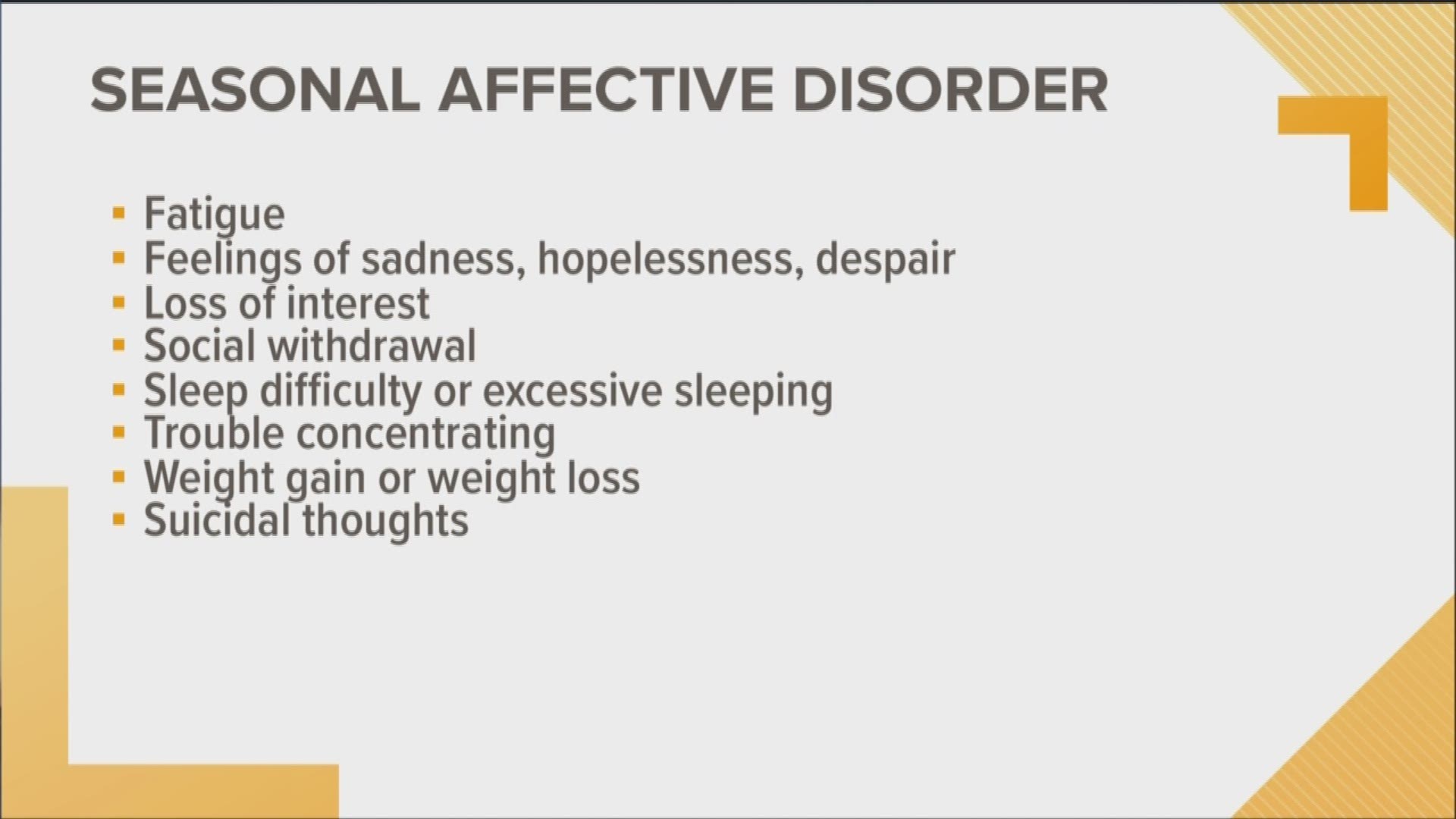GOLDEN VALLEY, Minn. - For the next several weeks, we can expect fewer than nine hours of sunlight each day. That can affect your mental health.
The American Psychiatric Association says around five percent of adults in the U.S. experience seasonal affective disorder, which is also known as SAD or seasonal depression.
The signs are the same as those of depression. However, they tend to begin in fall and resolve in spring.
Symptoms include fatigue, feelings of sadness, hopelessness, and despair, loss of interest, social withdrawal, sleep difficulty or excessive sleeping, trouble concentrating or making decisions, weight gain or weight loss and suicidal thoughts.
Mental illness is not a sign of weakness. Elements of Behavioral Health, a California rehab center, says mental illness requires medical attention and "just as you can't beat cancer by simply 'being strong,' you can't beat mental illness through the power of your will or by ignoring the problem."
SAD affects people in different ways and treatment varies from person to person. See a doctor or medical professional to discuss what would work best for you.
Mayo Clinic says treatment may include light therapy, medications and psychotherapy.
The American Psychiatric Association says most people who use a light therapy box see improvement within one or two weeks. You can get one without a prescription on Amazon and in stores such as Walmart. It emits a bright light, filters out ultraviolet rays, and is designed to simulate dawn.
Health care experts say going for a walk first thing in the morning, after sunrise, tends to work better than a box.
You'll get more light than a box can provide and the exercise is a benefit.
If you go to work before sunrise, you can do simple exercises indoors like stretching, jumping jacks or jogging in place.
Exercise goes hand in hand with cognitive behavioral therapy. This type of therapy involves working with a therapist to develop better habits like doing an activity instead of getting into bed as soon as you're home.
Mental health experts say going to two sessions a week, for six weeks, should mean fewer relapses than there would be using a light therapy box.
The National Institute of Mental Health says you can do the following during treatment for depression, no matter what time of year:
1. Try to be active and exercise.
2. Set realistic goals for yourself.
3. Try to spend time with other people and confide in a trusted friend or relative.
4. Try not to isolate yourself, and let others help you.
5. Expect your mood to improve gradually, not immediately.
6. Postpone important decisions, such as getting married or divorced, or changing jobs until you feel better. Discuss decisions with others who know you well and have a more objective view of your situation.
7. Continue to educate yourself about depression.

